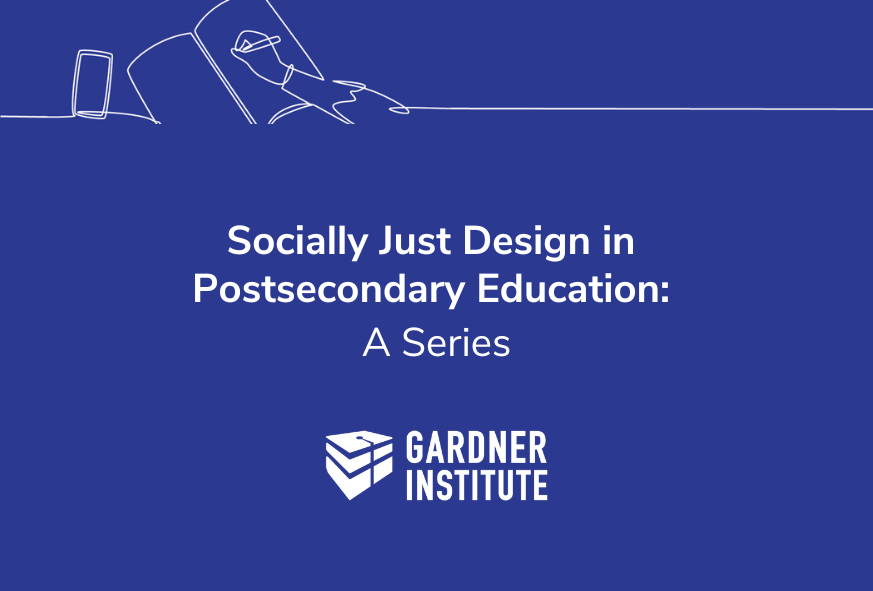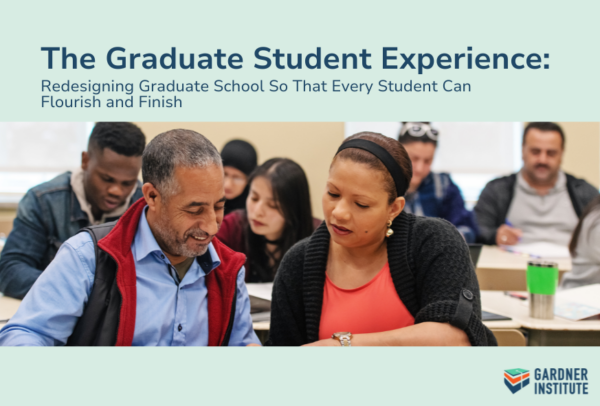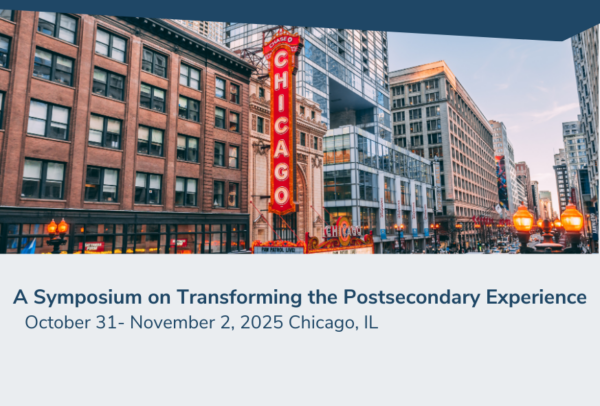Socially Just Design in Postsecondary Education: A Series
Volume II
Should race and ethnicity be the greatest predictors for students to succeed in postsecondary education?
Colleges and universities in the twenty-first century are not designed to optimally advance social justice and equity goals. One need only examine both who gets to go to college and who ultimately completes a postsecondary credential to see that race/ethnicity and family income determine far too much about who does and does not become a “college graduate.” Changing this inequitable reality requires colleges, universities, and educators of all kinds to actively and intentionally embrace socially just design in postsecondary education and to operationalize socially just designTM in the various subsystems – academic advising, academic labor, courses and the curriculum, transfer, etc. – that make up the broader postsecondary education system.
What can be done about it?
By examining the current systems, and the unjust design that creates the pitfall-filled road that many students face during their undergraduate education, institutions can begin to identify and address the unjust design. During the summer and fall 2022, The Gardner Institute and a host of postsecondary education-focused organizations, institutions, and thought leaders will examine these systems and explore how socially just design can lead to more equitable educational outcomes. This unique series will help colleges and universities better work towards more socially just design and equitable outcomes in higher education.
Socially Just Design
The Series
A comprehensive look at inherently unjust design in higher education
The content in this series will help contributors and participants alike share successes and failures in their quest to identify and redesign policies, practices, pedagogies, and structures that, if left unexamined and unaddressed, will continue to reproduce inequitable outcomes in postsecondary education.
The outcomes
Ultimately, the goal of the series will be to share evidence-based approaches that help educators eliminate the role that race/ethnicity, family income, and other demographic variables play in predicting who does or does not complete a postsecondary credential and subsequently engage equitably in future economic and societal opportunities.
Working alongside leaders in undergraduate education we hope to both shape current institutional efforts around socially just design and to marshal a broader national movement focused on just and equitable outcomes in postsecondary education. We also hope to change the structure of higher education so that it no longer promotes and perpetuates racialized and class-based outcomes. We will start a national collective conversation to address this unjust situation.
Chapter 1- Socially Just Design in Gateway Courses
Improving the FYE Across Disciplines via Inquiry and Digital Scholarship
Edward Ayers, New American History Project
Annie Evans, New American History Project
Teaching History with Julia Brookins and Emily Swafford
Julia Brookins, American Historical Association
Emily Swafford, American Historical Association
Case study- Transformational Change: Student Success, Strategic Planning, and Closing Equity Gaps
Michael Nealon, Henry Ford College
Case Study- Socially Just Design in STEM Courses
Bryan Dewsbury, Florida International University
Equity Transfer Initiative -Tulsa Higher Education Consortium
Pamela Fly, Associate Vice President for Academic Affairs, Northeastern
Houston GPS Transfer Pathways: A Regional Approach to Student Success
Teri Longacre, Vice Provost, Undergraduate Student Success, University of Houston
Nicole McDonald, Assistant Vice Provost, Student Success, University of Houston
Teaching for Inspiration: Approaches to Engaging Transfer Students in Gateway Courses
Stephanie M. Foote, Senior Associate Vice President for Teaching, Learning, and Evidence-Based Practices, Gardner Institute
Plenary- Advising, Teaching and Learning in the Shadow of Trauma: Challenges and Opportunities
Mays Imad, Connecticut College
Joshua Stacher, Professor of International Relations in the School of Multidisciplinary Social Studies and Humanities, Kent State University
Socially Just Design in the Academic Advising System: Redesign to Close the Equity Gap
Jammie Wilbanks, Associate Vice President for Student Success and Enrollment Services, Wiregrass Georgia Technical College
Plenary: Fostering An Inclusive and Just Graduate Education Experience
Suzanne Ortega, President, Council of Graduate Schools
Case Study: Socially Just Design in Graduate Education
Reggie Ellis, Interim Dean of the School of Graduate Studies & Research, Florida A&M University
Creating a Movement
Chaouki Abdallah, Executive Vice President for Research, Georgia Institute of Technology
Greg Heileman, Vice Provost for Undergraduate Education, The University of Arizona
Transfer Literacy: Assessing Informational Symmetries and Asymmetries
Christine Arnold, Associate Professor, Memorial University of Newfoundland
Nathan W. Klingbeil, Professor in the Department of Mechanical & Materials Engineering, Wright State University
Christina Whitfield, Senior Vice President and Chief of Staff, State Higher Education Executive Officers Association (SHEEO)
Mac Powell, President, Accrediting Commission for Community and Junior Colleges (ACCJC)
Interviewed by Felita Williams
Governing Board & Cabinet Collaboration: Transforming Leadership for Equitable Student Success
Kemal Atkins, Senior Consultant, AGB Consulting
Vicki McGillin, Associate Vice President, Gardner Institute
Monica Flippin Wynn, Associate Vice President, Gardner Institute
Elevating Equity through Better Data
Meredith Fergus, Manager of Research and SLEDS, Minnesota Office of Higher Education
Steve Rogness, Enrollment Research Analyst, Minnesota Office of Higher Education
Chapter 1-
Guests
Chapter 2-
Guests
Chapter 3-
Guests
Chapter 4-
Guests
Chapter 5-
Guests
Chapter 6-
Guests
Speakers
Technical Consultant
Fellow
Fellow
Fellow
Executive Director, Swift Foundation





